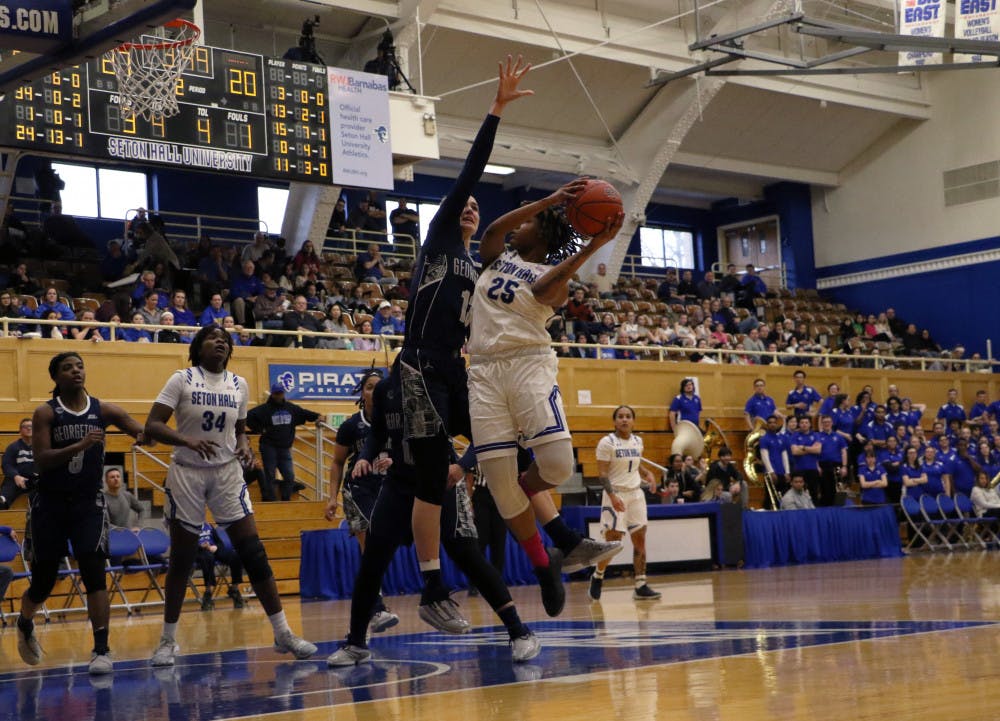Professor John D. Sweeney, who died earlier this month, left a mark at Seton Hall, and well beyond it, that few will match and none forget.
For half a century, Sweeney was a cherished and much loved figure at Seton Hall. Born in Philadelphia of a distinguished medical family, his father a doctor, his mother a nurse, he was fortunate to have parents who encouraged in him the intellectual curiosity and social compassion that were hallmarks of his personality for the rest of his life. At one time Sweeney imagined a medical career for himself before deciding instead to enter the Jesuit novitiate.
Although he eventually chose not to be ordained, intellectually and emotionally, a large part of Sweeney was always Jesuit. His first university post was at the Jesuit University of Scranton, where he taught classics for two years in the 1950s.
Appointed a professor of English at Seton Hall in 1958, Sweeney remained a member of the faculty until his retirement in 2009, teaching a variety of courses in the English Department and for the Honors Program, tutoring in Latin and Greek, doing his share of student advising and administration, lecturing in local libraries, playing in orchestras and bands, acting in student productions, designing sets, even finding the time to conduct occasional summer classes in China, Rome and Greece.
Tall, darkly bearded, handsome, he was an immediately recognizable figure on campus, striding to work or cycling, books precariously balanced on his arm or a basket, a penny whistle often in hand, a tune frequently on his lips. When eventually he got a car, its back seat was a tribute to his enthusiasms – books, toy soldiers, model trains, tubas, paintings, dogs. The car was also a monument to his legendary absent-mindedness, not only in its general disarray but also in his inability to turn off lights and engines. Few Seton Hall professors were better known to the security staff than Sweeney. He once parked his vehicle, headlamps blazing, outside the Carriage House and went off with students for two weeks in Italy. The car was still there, unstealable, on his return.
No day was ever long enough for the work or play or talk with which Sweeney wished to fill it. His capacity for wonder was undimmed, indeed it increased, the older he grew. “Only stupid people are bored,” he once gently reproached a student who had complained of idle moments on an overseas trip. Sweeney was never bored.
It was fitting that a man so much admired by his peers should be recognized by them as a scholar, teacher and thinker of unusual distinction. He was awarded National Endowment for the Humanities fellowships at Princeton University and SUNY Stony Brook. In 2004, Seton Hall bestowed on him its highest award, the Bishop Bernard J. McQuaid medal for Distinguished Service.
Teaching, for Sweeney, was not a job or work: it was a way of being. It brought joy to his life as he, through it, brought joy to the lives of others. A trained classicist, a good historian, a creative theologian, a fine and knowledgeable musician, he possessed an erudition that was both formidable and yet lightly worn. His learning was never showy but always shared with passion and delight, as if a mutual love of books and authors was the best possible bridge between the generations and the ages. He spoke of Virgil, Catullus, Chaucer and Shakespeare as if they were personal friends. He was as much at home with John Philip Sousa as he was with Johann Sebastian Bach. The American Civil War, the Sweeney family history, the bizarre verse form called the Higgledy-Piggledy: nothing human was alien to him.
To have a conversation with him was to enter a Memory Palace full of delights. To everything John did – quoting poetry in several languages, coining limericks on the spot, playing the flute or bagpipes, taking roles in Irish plays – he brought enthusiasm, humor and irrepressible joie de vivre. A boundless generosity of spirit made it impossible for him to speak ill of anyone. He loved life and, even as it drained away, he never complained of infirmity or the ills of old age. The lessons he learned early stayed with him to the end. His father, who died young, told him when he was dying to keep the faith. His son was as good as his word.
John Sweeney was an admired mentor, a respected colleague, and a firm friend. To his family, he was a devoted son, husband, father, brother and uncle. To generations of students, he was what a professor was supposed to be – encyclopedically well-read, endlessly explanatory, patently in love with his subject, quietly wise. To colleagues, he was the best of any day, an encouraging face on a Monday morning and a ready companion on a Friday afternoon.
Dermot Quinn can be reached at Dermot.Quinn@shu.edu.





